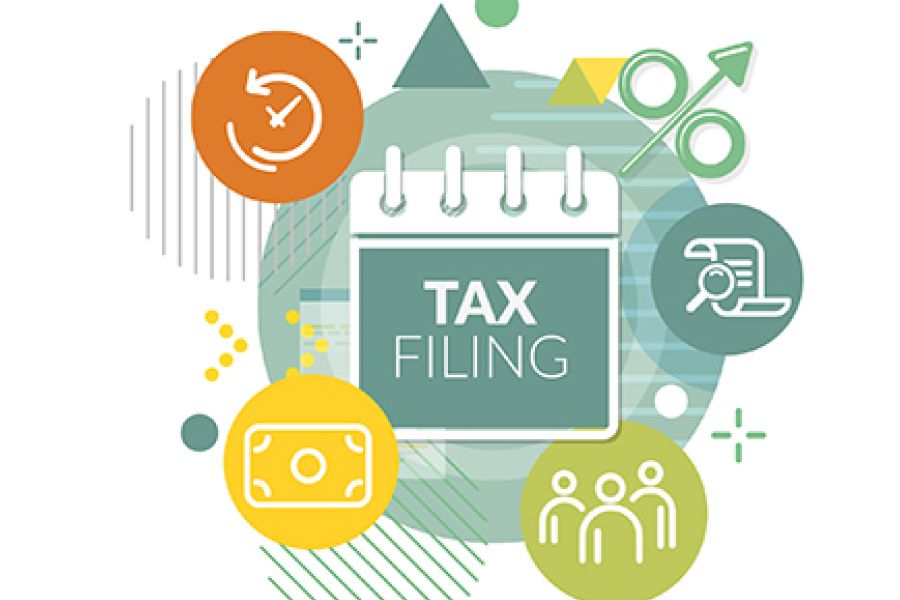Many startup companies require access to large sums of investment capital to take on well-established competitors. The need to raise such funding may encourage a startup’s founder to paint an overly optimistic picture of the business and exaggerate its ability to succeed. In some extreme circumstances, founders may resort to deception to convince investors to back their ventures. That’s fraud. Silicon Valley warning A medical testing startup provides a cautionary tale of what can happen when an aggressive entrepreneur plays fast and loose with the truth. Based on the extravagant claims of the Silicon Valley company’s founder, the startup raised more than $700 million and secured a $10 billion valuation. When evidence emerged that it couldn’t conduct extensive medical tests on tiny amounts of blood as it...

If you have a traditional IRA or tax-deferred retirement plan account, you probably know that taking required minimum distributions (RMDs) is mandatory when you reach a certain age — or you’ll be penalized. The CARES Act, which passed last March, allowed people to skip taking these withdrawals in 2020 but now that we’re in 2021, RMDs must be taken again. The basics Once you attain age 72 (or age 70½ before 2020), you must begin taking RMDs from your traditional IRAs and certain retirement accounts, including 401(k) plans. In general, RMDs are calculated using life expectancy tables published by the IRS. If you don’t withdraw the minimum amount each year, you may have to pay a 50% penalty tax on what you should have taken out —...
Attending college is one of the biggest investments that parents and students ever make. If you or your child (or grandchild) attends (or plans to attend) an institution of higher learning, you may be eligible for tax breaks to help foot the bill. The Consolidated Appropriations Act, which was enacted recently, contains some revised tax benefits for higher education. Here’s a rundown of what has changed. Deductions vs. credits Before the new law, there were tax breaks available for qualified education expenses including the: Tuition and Fees Deduction, Lifetime Learning Credit, and American Opportunity Tax Credit Tax credits are generally better than tax deductions. The difference? A tax deduction reduces your taxable income while a tax credit reduces the amount of taxes you owe on a dollar-for-dollar basis. First, let’s...
The IRS opened the 2020 individual income tax return filing season on February 12. (This is later than in past years because of a new law that was enacted late in December.) Even if you typically don’t file until much closer to the April 15 deadline (or you file for an extension), consider filing earlier this year. Why? You can potentially protect yourself from tax identity theft — and there may be other benefits, too. How is a person’s tax identity stolen? In a tax identity theft scheme, a thief uses another individual’s personal information to file a fraudulent tax return early in the filing season and claim a bogus refund. The real taxpayer discovers the fraud when he or she files a return and is told by...
Over the past year, most businesses have been forced to contend with multiple crises, including COVID-19, social unrest and financial challenges. The last thing you need right now is a fraud incident. But if your company is defrauded, make your fraud contingency plan one that can help mitigate the damage. Identifying likely scenarios No contingency plan can cover every possibility, but yours should be as wide-ranging as possible. Work with your senior management team and financial advisors to devise as many fraud scenarios as you can dream up. Consider how your internal controls could be breached — whether the perpetrator is a relatively new hire, an experienced department manager, a high-ranking executive or an outside party. Next, decide which scenarios are most likely to occur given such factors...
When it comes to taxes, December 31 is more than just New Year’s Eve. That date will affect the filing status box that will be checked on your 2020 tax return. When filing a return, you do so with one of five tax filing statuses. In part, they depend on whether you’re married or unmarried on December 31. More than one filing status may apply, and you can use the one that saves the most tax. It’s also possible that your status could change during the year. Here are the filing statuses and who can claim them: Single. This is generally used if you’re unmarried, divorced or legally separated under a divorce or separate maintenance decree governed by state law. Married filing jointly. If you’re married, you can...
Whew, you made it through 2020! But don’t rest easy yet as there's new fraud to watch out for in 2021. The fraud perpetrators enjoyed a profitable year in 2020, and there are signs they may continue to feed off Americans as long as the pandemic is active. Here are several new scams. PPP fraud Struggling small-business owners have welcomed last month’s 11th hour extension of the Paycheck Protection Program (PPP). They aren’t alone: Fraudsters skilled at falsifying loan applications are also likely rubbing their hands in anticipation. The Justice Department has brought charges against at least 80 individuals for stealing $127 million from the first PPP. Law enforcement expects to charge more (likely many more) con artists as evidence is uncovered. Indeed, the House Select Subcommittee on...
This year, the optional standard mileage rate used to calculate the deductible costs of operating an automobile for business decreased by one-and-one-half cents, to 56 cents per mile. As a result, you might claim a lower deduction for vehicle-related expenses for 2021 than you could for 2020 or 2019. This is the second year in a row that the cents-per-mile business mileage rate decreases year-over-year. Deducting actual expenses vs. cents-per-mile In general, businesses can deduct the actual expenses attributable to business use of vehicles. This includes gas, oil, tires, insurance, repairs, licenses and vehicle registration fees. In addition, you can claim a depreciation allowance for the vehicle. However, in many cases, certain limits apply to depreciation write-offs on vehicles that don’t apply to other types of business...
In one recent cybercrime scheme, a mortgage company employee accessed his employer’s records without authorization, then used stolen customer lists to start his own mortgage business. The perpetrator hacked the protected records by sending an email containing malware to a coworker. This particular dishonest worker was caught. But your company may not be so lucky. One of your employees’ cybercrime schemes could end in financial losses or competitive disadvantages due to corporate espionage. Best practices Why would trusted employees steal from the hand that feeds them? They could be working for a competitor or seeking revenge for perceived wrongs. Sometimes coercion by a third party or the need to pay gambling or addiction-related debts comes into play. Although there are no guarantees that you’ll be able to foil every...
If you’ve caught an employee stealing from your company, you may think that turning the person over to the police will result in prosecution. That’s not necessarily true. Law enforcement officials pursue and reject cases for many reasons. So if you’re determined to request prosecution of an occupational fraud perpetrator, take the following steps to help in preparing a fraud case. 1. Make it easy to follow In the rush to submit a case to law enforcement, it’s easy to forget that the police and prosecutors won’t necessarily understand your industry’s jargon or understand your business’s accounting records. Make it easier for everyone to understand what the perpetrator might have done and why it deserves their attention. Preparing a document that defines acronyms and common terms used...
- 1
- 2
- 3
- 4
- 5
- 6
- 7
- 8
- 9
- 10
- 11
- 12
- 13
- 14
- 15
- 16
- 17
- 18
- 19
- 20
- 21
- 22
- 23
- 24
- 25
- 26
- 27
- 28
- 29
- 30
- 31
- 32
- 33
- 34
- 35
- 36
- 37
- 38
- 39
- 40
- 41
- 42
- 43
- 44
- 45
- 46
- 47
- 48
- 49
- 50
- 51
- 52
- 53
- 54
- 55
- 56
- 57
- 58
- 59
- 60
- 61
- 62
- 63
- 64
- 65
- 66
- 67
- 68
- 69
- 70
- 71
- 72
- 73
- 74
- 75
- 76
- 77
- 78
- 79
- 80
- 81
- 82
- 83
- 84
- 85
- 86
- 87
- 88
- 89
- 90
- 91
- 92
- 93
- 94
- 95
- 96
- 97
- 98
- 99
- 100
- 101
- 102
- 103
- 104
- 105
- 106
- 107
- 108
- 109
- 110
- 111
- 112
- 113
- 114
- 115
- 116
- 117
- 118
- 119
- 120
- 121
- 122
- 123
- 124
- 125
- 126
- 127
- 128
- 129
- 130
- 131
- 132
- 133
- 134
- 135
- 136











